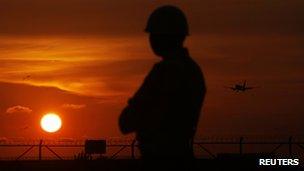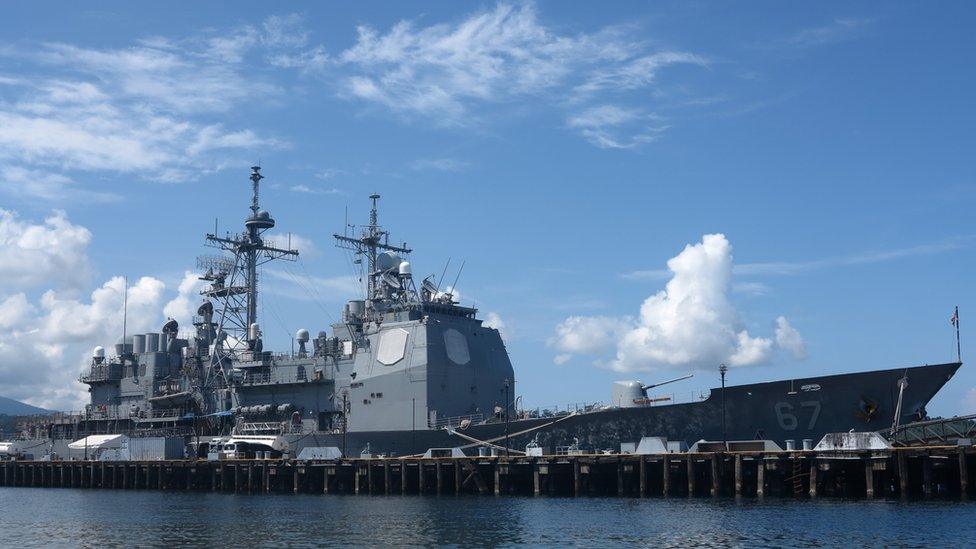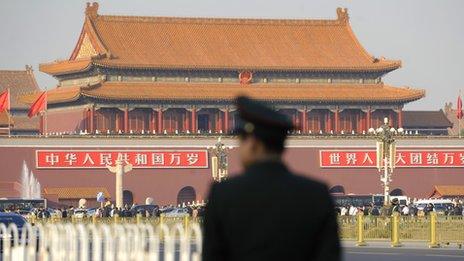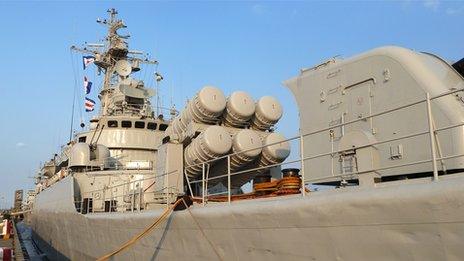Bali panacea for Asean?
- Published

Bali is a paradise to many, but it may be less tranquil during the Asean meeting
Bali is known as a peaceful paradise - a calm, serene island of the gods nestled in the Indonesian archipelago. But discussions amongst leaders of the Association of South East Asian Nations (Asean) this week are likely to be anything but peaceful or calm.
Asean has a lot on its plate during this summit - it has to decide whether or not to give Burma the chairmanship of the grouping in 2014, firm up its ambitious plans of turning into a united economic community by 2015, and ease tensions between member states and China over the heated issue of the South China Sea.
This Asean meeting is being seen as one of the most critical ever, as it comes at a time of global economic uncertainty.
Ministers in the group have said it is now more urgent than ever for it to work towards a single economic community by 2015.
The plan is for Asean to turn itself into a eurozone-like entity - with no barriers to trade, a common visa system - and possibly even a single currency.
But there are concerns about how this will actually work - given how near the deadline is, and how disparate a group Asean is in terms of economic development.
Adjustments needed
The association's secretary general Surin Pitsuwan acknowledges it will be a tough task.
"We have to try to bridge the distances between us," he said.
"The member states that are coming behind the rest are also making their own adjustments in order to benefit from the synergy of the other member states.
"But the difference is not only in the level of income, it is in the infrastructure, the way we manage our national economies - a lot of adjustments need to be made. "
It is not just on the economic front that adjustments will need to be made within the group.
As Asean eyes its deadline of turning into a single economic block by 2015, it is also searching for international credibility for all members of its group - and that means having to deal with the often thorny issue of Burma, one of the most isolated and autocratic nations in the world.
It has consistently been a source of embarrassment for Asean.
Burma has lobbied hard for the Asean chair in 2014 - it wants the international recognition and investment that comes with it.
In recent months rare signs have emerged, hinting at the possibility of change in the isolated country.
Restrictions on foreign media websites have been relaxed, some political prisoners have been released, and a controversial Chinese funded dam project has been suspended.
Even the pro-democracy leader Aung San Suu Kyi has given cautious backing to the process of reform that appears to be under way in Burma.
Analysts say Burma will almost certainly get the Asean chairmanship in 2014.
This is a move that Western nations who have placed sanctions on Burma are unlikely to applaud.
Diplomats say the West still needs further proof that Burma has really changed. It will want to see the release of more political prisoners, full dialogue with opposition parties.
The West will also want assurances that there will be an end to the ethnic conflicts that have plague Burma for decades.
While the decision whether or not to award Burma will likely dominate the agenda on the first day of the Asean summit, the conversation will almost certainly turn to issues of maritime security once the US and China arrive for the East Asia Summit.
'Red-hot issue'

The US has been very clear about its new goal in this part of the world. In a recent speech the US Secretary of State Hilary Clinton talked about the "strategic pivot" the US is making towards the Asia Pacific region.
The move is being seen by many as the US trying to counter the influence of China in the region - in particular over the issue of the South China Sea.
The South China Sea is home to potentially huge reserves of oil, and is a vital shipping lane through which billions of dollars of trade pass every year.
China and Taiwan lay claim to all of the South China Sea - while Asean members the Philippines, Brunei, Vietnam and Malaysia members lay claim to parts of it.
"The South China Sea is the most contentious issue that will be discussed during the meetings", says Carl Thayer of the Australian Defence Force Academy from Canberra.
"It's the red-hot divisive issue. Because of China's economic influence in Asean, there's a reluctance by some nations who are not directly involved in the South China Sea issue not to take too strong a stand against mighty China."
Some Asean nations that have a stake in the strategic waters, like the Philippines, have appealed to the US to step in. China has been adamant that the South China Sea should be discussed only with countries that are directly involved - and has told the US to stay out of its affairs. Tackling these tensions, and finding a way to calm and soothe the nerves of those involved, will be high on Asean's list.
"No-one wants a war in the region," said Surin Pitsuwan.
"We are already working towards a peaceful resolution of the issue. Imagine if Asean or the East Asia Summit didn't exist - the war of words would flare up.
"As Churchill said, to jaw-jaw is better than to war-war. They talk, the exchange may be heated, but at least they stop short of shooting each other."
- Published24 October 2011

- Published7 July 2023

- Published16 November 2011

- Published4 November 2011
